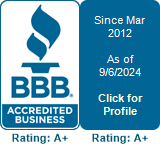One of the most common reasons why people lose against the IRS is because their documents are lost, unavailable or too expensive to obtain. Assuming that you can afford to obtain the records, how do you find lost documents?
Why Does the IRS Want the Documents?
Before you answer that question, you need to know why the IRS wants the documents. It could be for Return preparation, an Audit, or Collections.
If it is for an Audit or for Return preparation within the last 5 years, then this current information should be mostly available in electronic form. If it is needed for years greater than 5 years ago then you may have to seek the archives.
In case that the IRS wants the documents for Collections then they seek more recent information and it should be obtainable, if it exists.
What Documents are Lost?
The next question is: what documents are lost? Your tactic to obtain them will change according to the type of document sought & for what purpose it is being used. If you are missing Income documents, you can go to the IRS or your bank to start.
If you seek Deduction or Expense information, then you need evidence to establish that: 1) the expense was Ordinary & Necessary and 2) it was paid in the year. So, this evidence can consist of tangible items such as bank accounts, checks or receipts. It can also be an affidavit or testimony from a witness (even your own).
Where to Look
Obviously, the 1st place to look is within your own records. Even if you can't find all the missing documents, perhaps enough of them can be obtained to establish a pattern which can be logically carried forward. You will also find account numbers, court filing numbers, case numbers, bank account numbers & all such numbers that will help you find other information.
For bank accounts you'll have to go to the bank where the account existed, if it is still in business. Many bank records are available but the cost can be high, depending on what year you want. Bank statements cost less than when you need cancelled checks or more advanced research. Sadly, for many of these IRS proceedings it is advisable to get ALL your records from the bank. No matter what the cost.
For cash transactions, you'll have to get affidavits from the other people involved or ask them to testify for you, if possible.
Also, depending on the IRS procedure, you can ask the IRS to issue a Summons to get the information. For instance, the IRS always asks a taxpayer to obtain bank signature cards. They do this to verify the taxpayer's signature on the bank account so they can assess the Trust Fund Tax.
But, when taxpayers don't respond adequately the IRS will usually issue a Summons to the bank to get the information directly.
Conclusion
If you know why the IRS wants the evidence, what type of evidence they want & for what purpose, you can more easily find where the evidence exists, how much effort & cost will be involved & in what format it exists.
If you can't find all your evidence, at least find enough to establish your credibility so you can push your claims. Good Luck!
J. David Hopkins, JD, LLM






